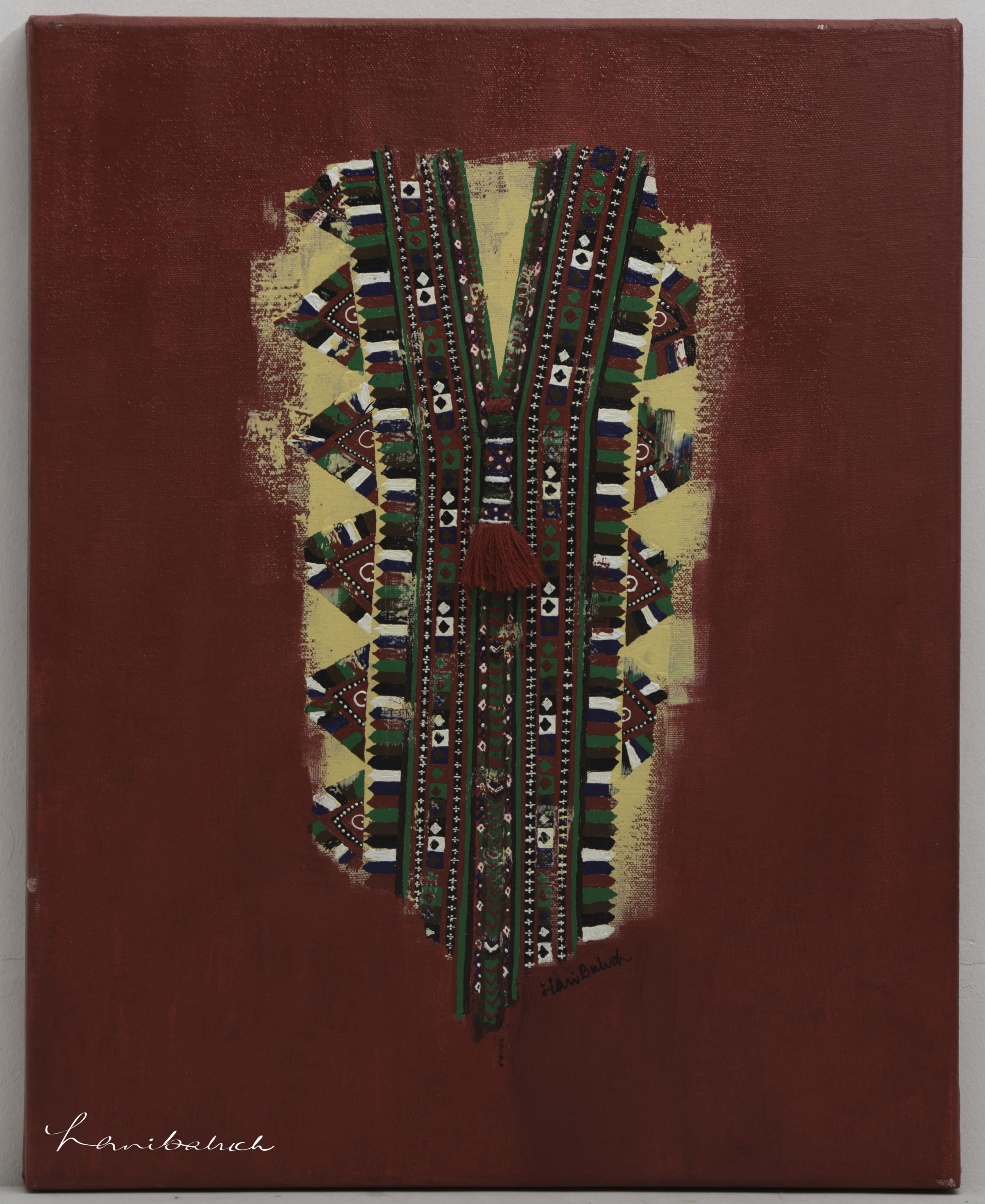On January 24, family members and several followers of Karima Baloch, a 37-year old exiled political activist from Pakistan’s restive Balochistan province who mysteriously died in Canada in December 2020, gathered at Karachi’s Jinnah International Airport to receive her dead body. Profound grief marked their faces as they mourned the sudden death of the young articulate leader who had galvanized Balochistan’s women into the national movement for human rights and self-determination. But they were also relieved that the body’s arrival ended a prolonged wait caused by police investigations and official formalities following her family’s call for a thorough investigation into what they insisted was a political assassination.
Since Pakistan’s creation in 1947, Balochistan has had a troubled relationship with Islamabad because of a wide range of issues, from the reluctance of some to join the fledgling state to who controls and benefits from the province’s rich mineral resources. These discussions have triggered several deadly conflicts in Balochistan, which borders both Iran and Afghanistan. For example, in 1973 – 1977, an estimated 5000 civilians and 3000 security personnel lost their lives in clashes between security forces and the Baloch people. And the constant paramilitary presence in Balochistan acts as a trigger for such violence.
A recent increase in China’s presence in the region due to the China-Pakistan Economic Corridor (CPEC) has further fueled the Baloch resistance against Islamabad and Beijing, where Baloch nationalists view China as a usurper of the Baloch natural resources. To protect its interests and investments in Pakistan, China has reportedly offered to be a mediator between the federal government and Baloch nationalists but instead has faced backlash, mainly from Baloch nationalists. For example, in November 2018, the Balochistan Liberation Army, a separatist group, attacked the Chinese consulate in Karachi, killing four. Their reason: to stop what they describe as Chinese oppression and reach into Balochistan. While none of the attacks have been large enough to halt CPEC, Pakistan has taken a rigorous approach toward these groups, including recently fencing parts of the controversial port in Gwadar — built by the Chinese despite Baloch opposition to the project.
How exactly Ms. Baloch died remains unanswered, especially for her followers who seemed to have naively misconstrued the grant of political asylum in Canada with a guarantee to remain unharmed — and alive. Now they are in a state of utter disbelief that their leader died in a country where she was supposed to be safe. Her death, however, marks the rebirth of Ms. Baloch’s political legacy as a “martyred leader” of the ongoing Baloch resistance movement that shows no signs of easing since it started in 2004.
WHO WAS KARIMA BALOCH?
Ms. Baloch rose to Balochistan’s political landscape after the Pakistani military, under the leadership of General Pervez Musharraf, killed former Baloch governor and chief minister Nawab Akbar Bugti in August 2006. Bugti’s killing not only sparked a province-wide resistance movement against the Pakistani military, but it also took a more radical turn wherein previous calls for autonomy for Balochistan switched to demands for outright independence. As reported by Human Rights Watch, after Pakistan quelled these calls with enforced disappearances and torture, a new generation of Baloch activists, including women like Ms. Baloch emerged in the arena staging protest rallies, holding hunger strike camps, addressing press conferences, and mobilizing fellow citizens to unite against Pakistan’s policies in Balochistan.
While some of the world’s top media outlets, such as The Guardian, BBC, Voice of America, CNN, Al Jazeera, reported Ms. Baloch’s death, most of Pakistan’s mainstream newspapers and news channels did not report it either due to the fear of reprisal from the military or a lack of interest in stories related to Balochistan.
She was also very vocal about her support for the Baloch nationalist movement, which seeks a separate homeland for Pakistan’s ethnic Baloch minority. She blamed the Pakistani army for the widespread human rights violations in Balochistan, including killing one of her uncles. In response to her and other activists, Islamabad vehemently denies these charges and blames India for fueling the insurgency in the province via Afghanistan.
Pakistan found the peaceful democratic resistance more difficult to control than the ongoing armed one, mainly because many women — whose sons, brothers and husbands had been subjected to enforced disappearances by the Pakistani security forces — began to relate to Ms. Baloch’s voice. They found hope and a mission in her message as she gave them a reason to unite and mobilize for justice. She also inspired and mentored a new generation of young female activists in the conservative Baloch society that had no precedence of women coming out of their homes or participating in politics, let alone resisting the ruling elite. Many of the activists she prepared have now transitioned from their roles as activists to leaders, campaigners, and community mobilizers, such as Dr Mahrang Baloch, a fearless campaigner for the rights of women, students, and fellow citizens who has also drawn praise for her activism.
THE “MISGUIDED” BALOCH YOUTH?
To discredit activists like Ms. Baloch, Islamabad, and sections of the right-wing media, label them “misguided youth” that is allegedly funded by India. Despite having no concrete evidence of Indian funding, these official narratives encourage security forces to unleash and then justify extrajudicial methods to break the Baloch rebellion. But the more forcefully Pakistan tried to defeat the Baloch resistance, the more young people joined the movement and denounced Pakistani security forces in Balochistan.
Amid the crisis and her own activism, Ms. Baloch found a leadership opportunity. She became the head of the Baloch Students Organization (BSO), becoming the first woman to lead the student organization in its 70-year history. Pakistan, however, banned the BSO, accusing it of supporting the Baloch separatist movement. In 2016, the BBC listed Ms. Baloch in its coveted list of 100 inspirational and influential women of the year because she “campaigns for independence for Balochistan from Pakistan.”
Even in exile, Ms. Baloch continued her criticism of the Pakistani military through public speeches, interviews, and social media. While Canada had provided her shelter from Pakistan since 2015, according to her family, threats continued to come. So when she died, her supporters raised fingers toward Pakistan because this was the second incident in a single year when an exiled Baloch activist/journalist was found dead in a river, the other being journalist Sajid Baloch in Sweden in March 2020. In both cases, local police ruled out any criminal activity, but distrust between the Baloch and Islamabad remains so deep that the Baloch opposition blames Pakistan for both deaths.
PRIORITIZING POLITICAL DIALOGUE OVER FORCE
In Karachi, Ms. Baloch’s supporters were enraged and disappointed when Pakistani authorities refused to give them the dead body for the planned funeral. Instead, armed security forces drove her body to her hometown, seemingly to prevent her supporters from attending the funeral. The independent Human Rights Commission of Pakistan termed the government’s handling of Ms. Baloch’s funeral as “disgraceful,” mirroring “the [Pakistani] state’s attitude towards Balochistan and its people.” Even though Pakistan has been hard hit by the global pandemic, authorities did not use coronavirus as a reason to stop the funeral. Her brother said the body was “illegally and forcefully” escorted by the Pakistani security forces, proving that “a mighty nuclear Pakistan’s Islamic state is shaken by a dead body of a Baloch woman.”
After Ms. Baloch’s supporters were prevented from having a large funeral for her, Balochistan’s Finance Minister, Zahoor Ahmed Buledai blamed the opposition for “playing politics” and politicizing her burial. The mishandling of Ms. Baloch’s body has triggered widespread criticism from Pakistan’s opposition leaders, including moderates who do not necessarily endorse Ms. Baloch’s separatist politics. For example, Sardar Akhtar Mengal, a former chief minister of Balochistan and a member of Pakistan’s parliament and overall moderate, reacted: “This is Balochistan; there are restrictions in my motherland, restrictions on my thoughts, my tongue, on my coffin, and my grave.”
In the absence of actual political dialogue between the two sides, social media — especially Twitter — has become a meeting point for trading allegations, presenting narratives and counter-narratives, and calling each other “foreign agents.” But most Pakistanis don’t know much about these ongoing tensions and the violence in Balochistan because of a near blackout of the events in the mainstream national media. While some of the world’s top media outlets, such as The Guardian, BBC, Voice of America, CNN, Al Jazeera, reported Ms. Baloch’s death, most of Pakistan’s mainstream newspapers and news channels did not report it either due to the fear of reprisal from the military or a lack of interest in stories related to Balochistan. Likewise, despite international coverage of Ms. Baloch’s killing, only some local officials in the Balochistan government acknowledged the death but Pakistan’s Prime Minister Imran Khan has not issued a statement, indicating the matter’s insignificance for Islamabad.
Ms. Baloch’s death will likely deepen the Balochistan crisis and widen the gap between the province and Islamabad. Pakistan has squandered repeated opportunities to initiate dialogue with the Baloch nationalists and take confidence-building measures to address the Baloch grievances. The more Islamabad delays a broad-based dialogue, the more it will push the younger generation of the Baloch into the separatist camp because not only is Pakistan too late in starting negotiations, but it is persistently reliant on a military solution toward an issue that can best be addressed through political dialogue.
Malik Siraj Akbar is the editor of The Baluch Hal, the first online English newspaper from Balochistan.





















